|
M. FORD CREECH ANTIQUES & FINE ARTS
CHELSEA 'HANS SLOANE' PLATE
London, 1756, Brown Anchor Mark
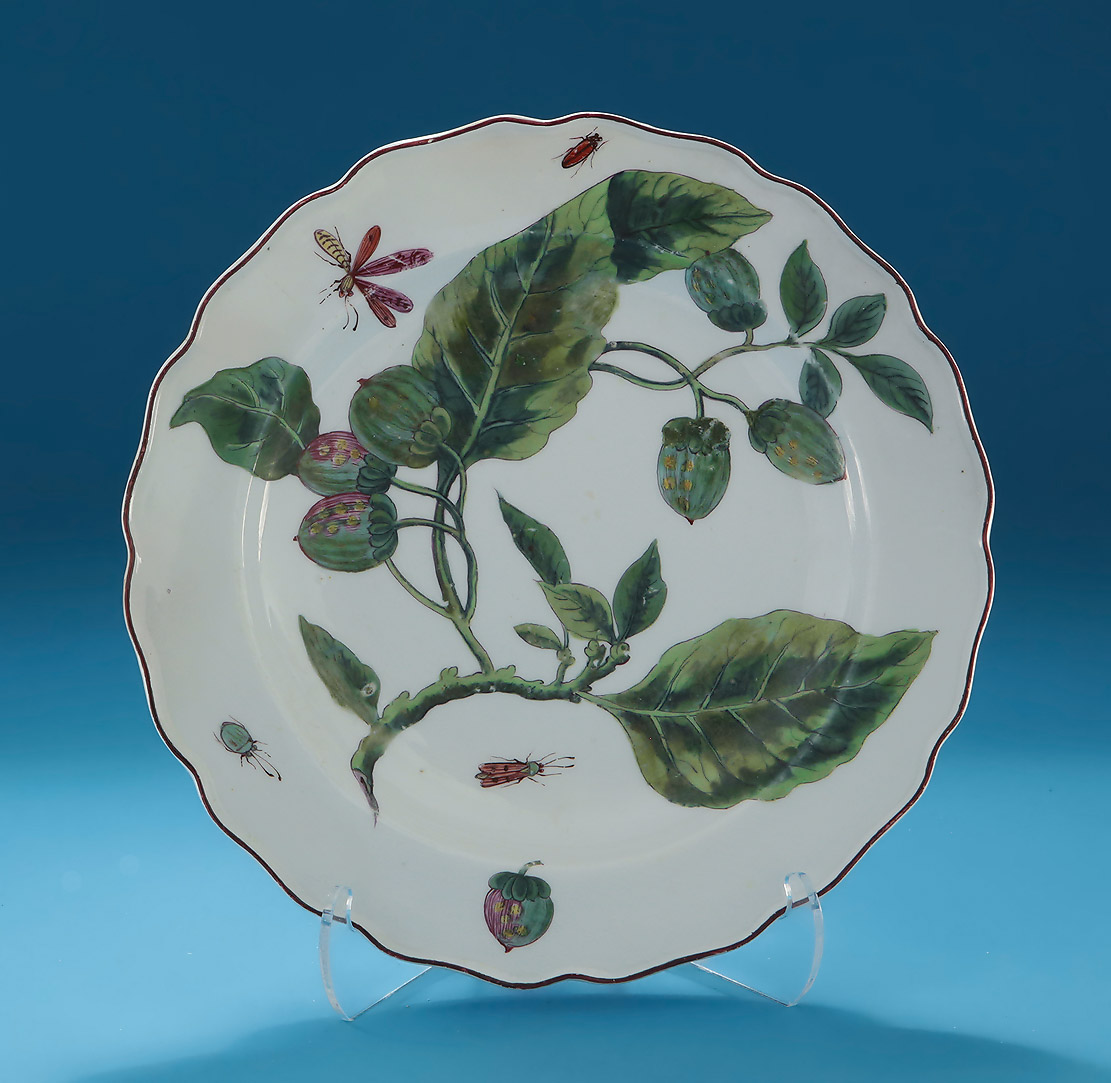
|
|
The plate with fluted brown line rim and brown anchor mark,
painted asymmetrically with a botanical having large leaves and further leafy sprays,
acorn-like fruits (probably Loganberries),
and four insects which would have fertilized them
The decorative term 'Hans Sloane' derives from an advertisement in Faulkner's Dublin Journal of July 1-4, 1758,
announcing '... table plates, soup plates and desart plates enamelled from Sir Hans Sloan's plants' -
apparently one of the first identifiable references to the Chelsea factory's popular botanical wares.
Sir Hans Sloane (1660-1753), was Physician to Queen Anne, created Baronet from 1716,
a great botanist and collector of rare plants.
Most botanical renderings on these Chelsea pieces were taken from
illustrations
in Philip Miller's Gardener's Dictionary and Figures of Plants depicting specimens from the Physic Garden.
(See more below)
Condition : One well restored 1.25" rim crack (about 7 o'clock) and 2 tiny restored rim nicks;
an area with light crazing; very little stacking enamel wear;
overall a very desirable example
8.25" Diameter
SOLD
#7228
Please Inquire
|
|
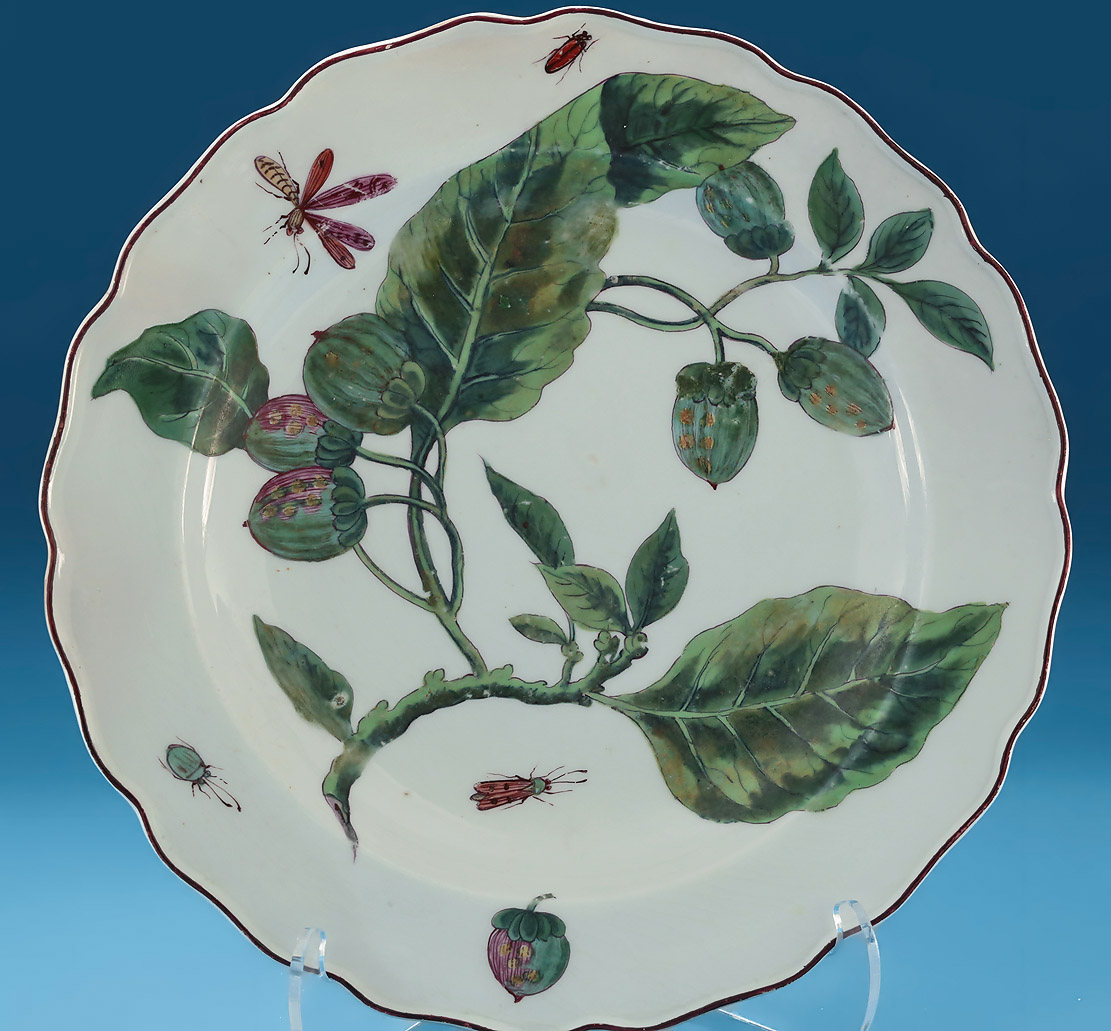
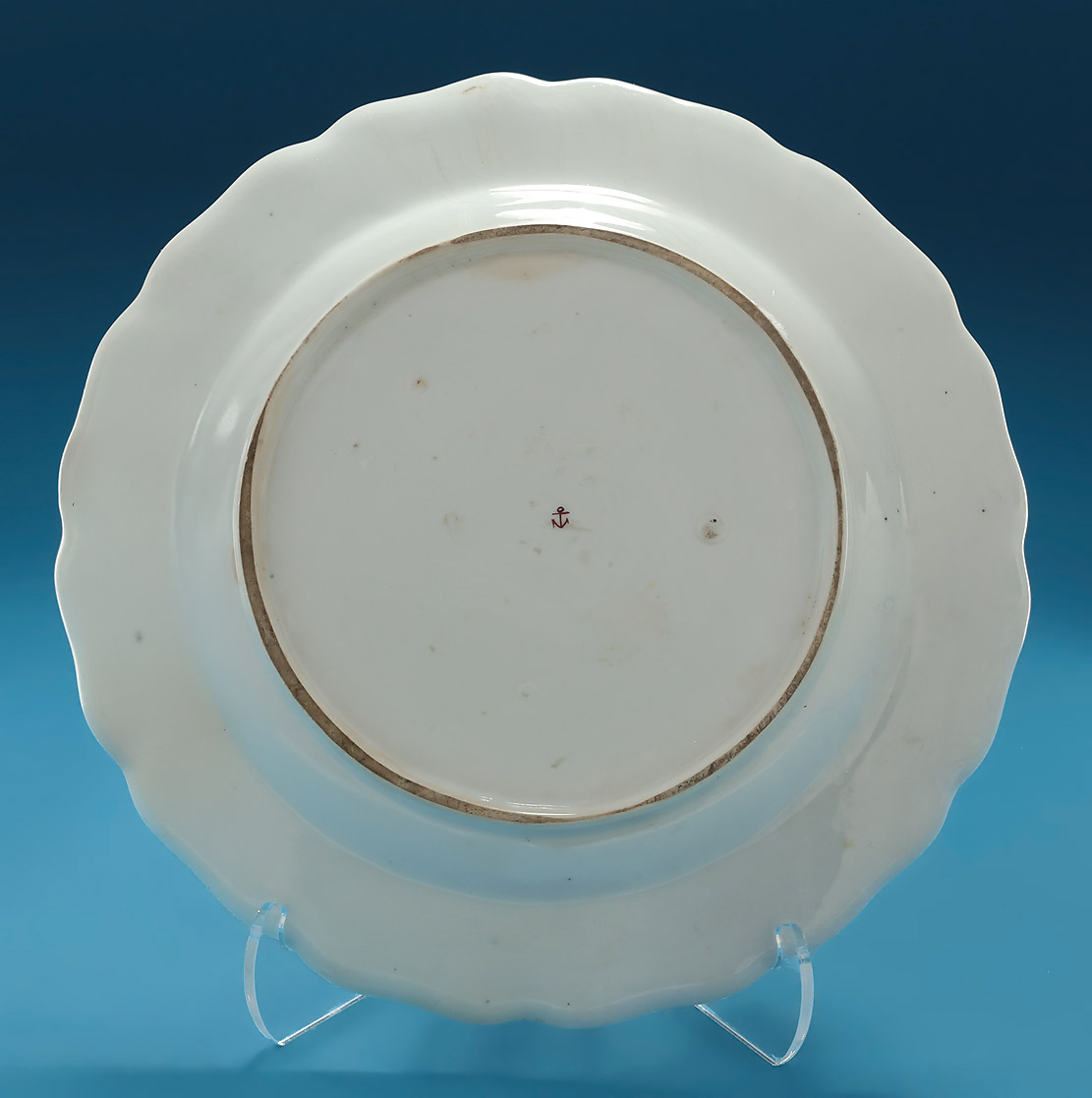
| |
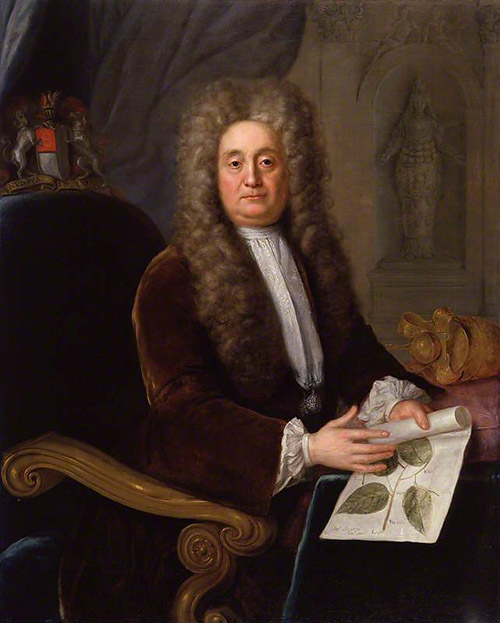
'Hans Sloane', Stephen Slaughter, 1697-1765, National Galleries, London
Sir Hans Sloane (1660-1753), was Physician to Queen Anne, created Baronet from 1716,
was a great botanist and collector of rare plants.
His 1712 purchase of a Manor in Chelsea (about 4 acres), provided the grounds for the Chelsea Physic Garden.
This garden, originally established in 1673 as the Apothecaries' Garden, is the second oldest botanical garden in Britain.
The word "Physic" here refers to the science of healing.
The garden supplied the Royal Society, of which he was a principal,
with 50 good herbarium samples per year, up to a total of 2,000 plants.
Hans Sloans had died a few years before this style of painting on Chelsea porcelain was introduced.
The first such "Hans Sloane" reference to these Chelsea porcelains derives from a 1758 advertisement
announcing the importation into Dublin of 'Three fine tureens….one in curious plants, with table plates,
soup plates and desart plates enamelled from Sir Hans Sloan's plants'. "India Plants"
was actually the contemporary name for the boldly painted realistic flowers and leaves -
as well as the insects fertilizing them decoration.
While the main source for these striking botanicals was apparently from books on botany,
another is said to be from live or pressed examples given to the Chelsea painters directly from Physic Garden.
As well, many of the Chelsea botanical designs were derived from paintings (or engravings after paintings)
by the internationally celebrated botanical artist Georg Dionysius Ehret.
Ehret produced a large number of exquisite paintings and drawings, encouraged particularly by Dr Mead,
the English Royal Physician. He had also been employed by Hans Sloane to copy his collection of 800 species of plants
(now dried and preserved in 333 volumes in the Botanical department of the Natural History Museum, South Kensington).
These engravings were published in several volumes, including Plantae Selectae, Plantae et Papiliones,
(published by Ehret), and Gardener's Dictionary, and Figures of Plants,
the latter published in separate parts from 1755-60 by Philip Miller,
curator of the Physic Gardens at Chelsea - where Ehret also held residence.
Of American interest :
Philip Miller also developed the first long-strand cotton seeds & in 1733 sent them to the new British Colony of Georgia.
They were first planted in Sea Island, deriving the name Sea Island Cotton.
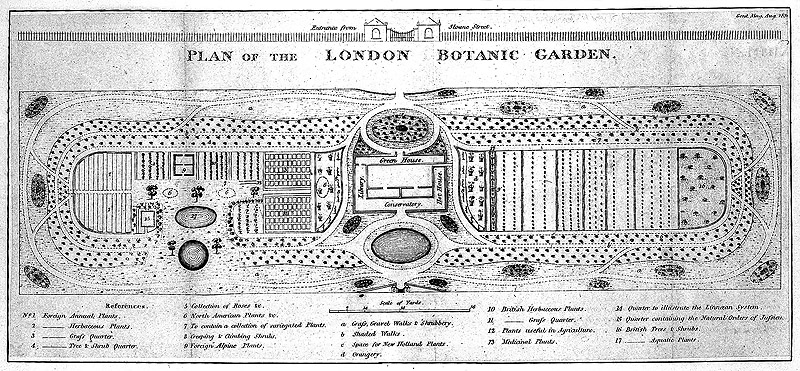
The Physic Garden, Chelsea
Above : Engraving, plan view with a key describing several areas of the garden.
Below : House & Garden Section (Elisa Rolle)
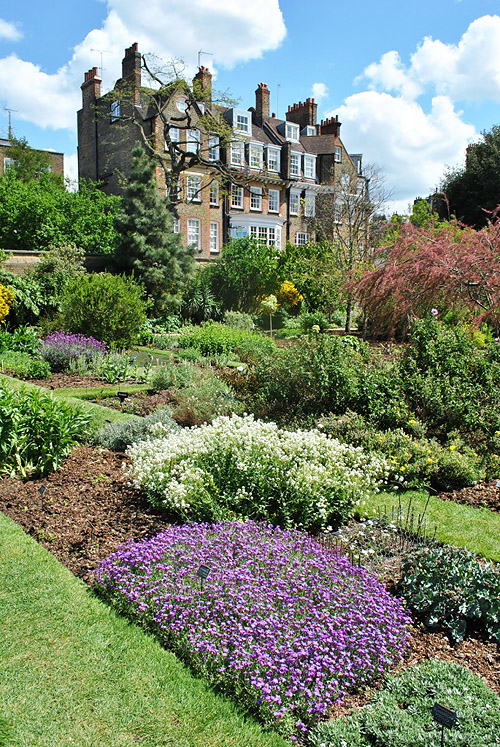
|
|
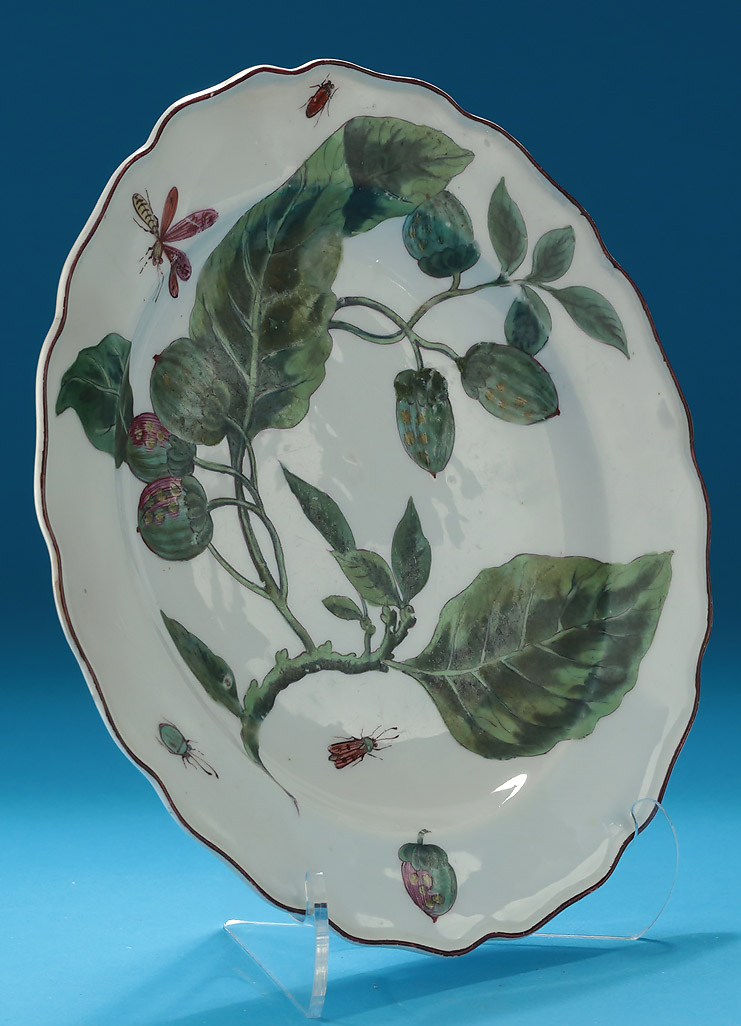 |
|
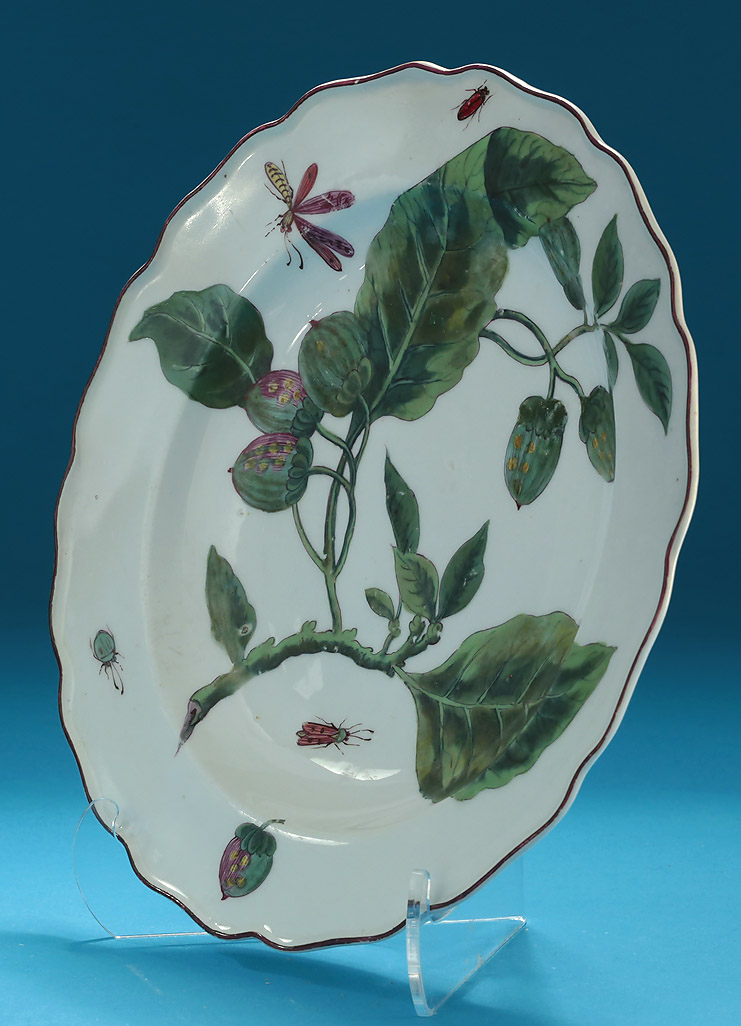 |
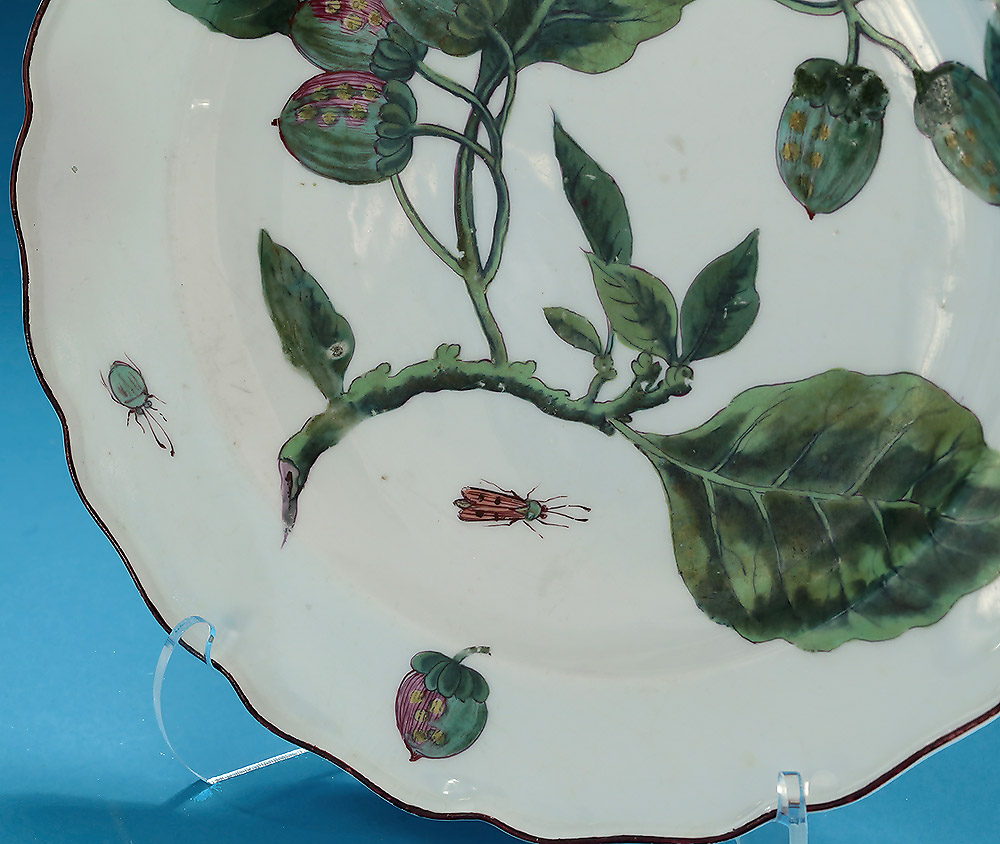
Area of "stacking wear" to the stem, & rim restoration; some overspray but no yellowing; well done
Also See :
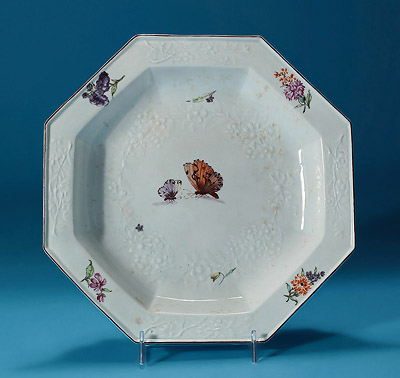
Good Chelsea Porcelain 'Damask'd" Octagonal Soup Plate
London, England, c1754-5 (Red Anchor Period)
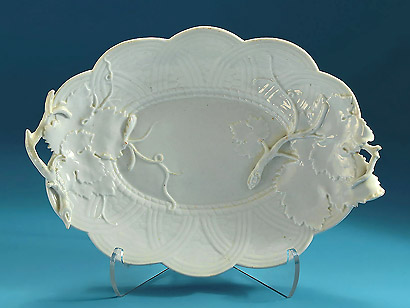
Scarce Chelsea White Leaf & Basket Molded Stand
England, c1752-54
Ref : For a polychrome example, see 'Chelsea Porcelain', Severne Mackenna, pl. 28.
11" Diameter
We welcome and encourage
all inquiries regarding our stock. We will make every attempt to answer any questions you might
have.
For
information, call (901) 761-1163 or (901) 827-4668, or
Email : mfcreech@bellsouth.net or mfordcreech@gmail.com
American Express, Mastercard, Visa and Discover accepted

 
M. Ford Creech Antiques & Fine Arts / 581
South Perkins Road / Memphis,
TN 38117 / USA /
Wed.-Sat. 11-6, or by appointment
|
|
Accessories Ceramics
Early Asian Ceramics
Fine Art
Furniture
Glassware
Silver
Home
Fine Pair Matthew Boulton Armorial Wine Coolers, Old Sheffield Plate, early 19c
© The images, concepts and text herein are subject to copyright.
Should you wish to reproduce any part of this site's content, please request permission.
We also require that any reproduction be attributed properly.
|
|
|










